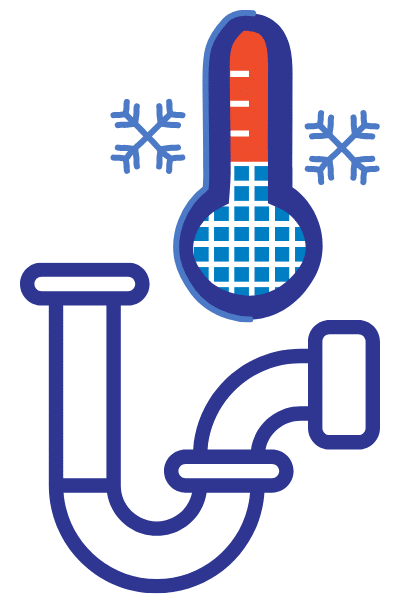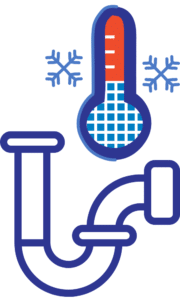
15 Feb How Winter Affects Your Plumbing and What You Can Do About It
How Winter Affects Your Plumbing and What You Can Do About It
Winter can be a challenging time for homeowners, especially those who have plumbing issues. Many Plumbing problems happen during the wintertime, and this is because of a few different factors. For one thing, winter usually brings cold temperatures and snow which both contribute to pipes freezing or bursting. In addition to that, you probably turn your water heater down during the colder months which also makes it more likely that you’ll have problems with your plumbing system. Wahl Heating, Cooling & Plumbing has you covered when winter affects your plumbing.
Winter Plumbing Problems
The most common plumbing problems that happen in the winter are frozen pipes and burst pipes. These problems are caused by lower temperatures which can freeze water, especially if they are near something cold like a window or HVAC system. If your water is turned off for any amount of time, it’s also possible for your pipes to freeze.
Another reason why winter is tough on your plumbing is that you probably turn your water heater down during the colder months. This means that the temperature of the water coming out of your faucet will be closer to room temperature, which can make it difficult to thaw frozen pipes. Other winter-related plumbing problems can include clogged drains and toilets, as well as an inadequate supply of hot water to showers or sinks.
How to Avoid Plumbing Problems this Winter
There are many things you can do to avoid these issues, some of which are more obvious than others. To avoid frozen pipes, you should leave a small amount of cold water running constantly so the pipe doesn’t freeze over completely. You should also never run hot water all day long or use boiling hot water with metal pipes because this could cause them to crack and leak even more quickly.
To keep from having burst pipes, you should have a plumber come out every year before the first freeze happens and check for leaks in your pipes, as well as replace any parts that may need it. You should also invest in pipe insulation which helps prevent leaks due to extreme temperatures. Another common problem is clogged drains due to the buildup of sediment and debris during the winter months. The colder temperatures combined with no rain lead to floors being less wet than usual which means debris is not washed down the drain as often.
To avoid clogged drains, create a slurry by adding some dish soap or laundry detergent to hot water and then pour it down your drain or into your sink for a few minutes each day before using it. Doing this will help remove any debris that may have built up in your pipes during the winter months.
Conclusion
During this chilly Pittsburgh winter, plumbing problems are all too common. From pipes freezing to increased pressure, winter can take a toll on your plumbing system. Fortunately, there are a few things you can do to protect your plumbing from the cold. And if you do experience a problem, it’s crucial to know how to fix it.
- Winter Plumbing Problems: Winter can be tough on your plumbing system. There’s often too much pressure and pipes can freeze or frost up.
- What Causes Winter Plumbing Problems? Cold temperatures and increased pressure in pipes cause many winter plumbing problems.
- How To Fix It: If you experience a problem, it’s crucial to know how to fix it. Here are a few ways to keep your plumbing functioning in cold weather:
- Insulate pipes to keep them from freezing and slowing down the water flow in pipes.
- Monitor and drain water from the system in case the system freezes and prevent pipes from bursting in the event of a power outage.
- Switch off outdoor faucets when it starts getting cold and turn them back on when the temperature rises again to prevent pipes from freezing and bursting when they thaw out.



